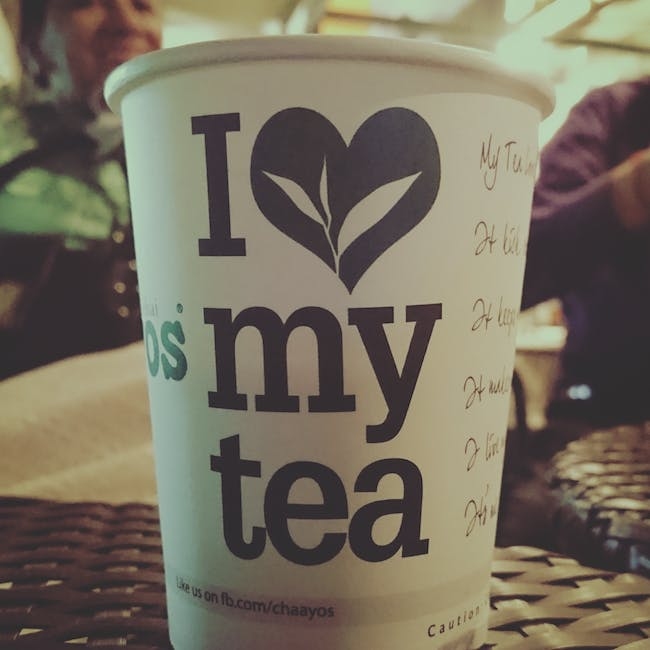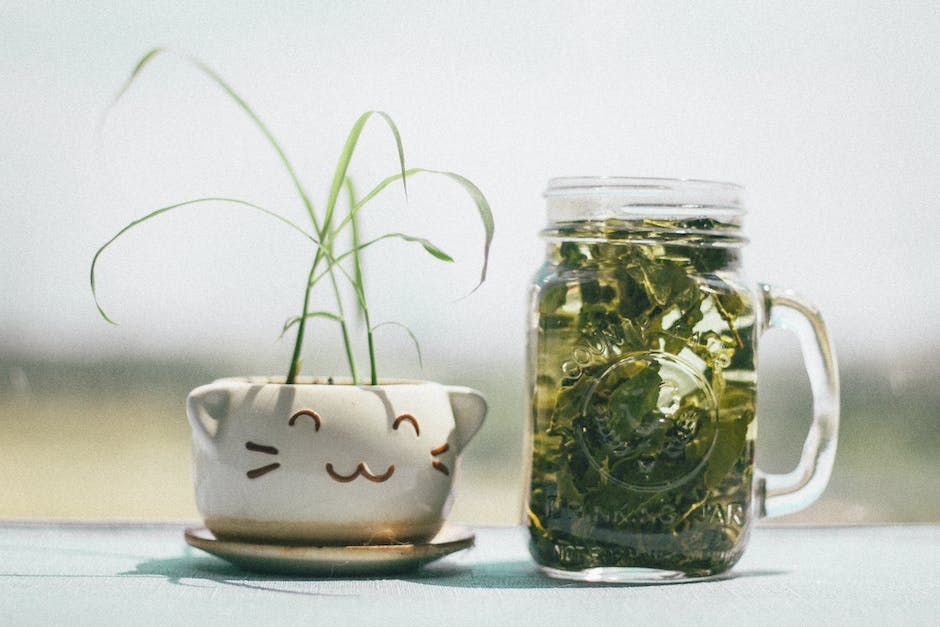The History of Herbal Tea in India
India has a rich history of consuming herbal tea, which dates back centuries. The practice of brewing herbal teas has been deeply rooted in Indian culture and has been passed down from generation to generation.
Herbal tea, also known as tisane, is a beverage made by infusing various parts of plants such as leaves, flowers, seeds, and roots in hot water. Unlike traditional tea, which is made from the leaves of the Camellia sinensis plant, herbal tea is made from a wide variety of plants, often chosen for their medicinal properties and aromatic flavors.
In India, the consumption of herbal tea is closely linked to the Ayurvedic tradition, an ancient system of medicine that emphasizes the balance between the mind, body, and spirit. Ayurveda uses herbs and plants as a fundamental part of its healing practices, and herbal teas are considered a natural and effective way to promote overall health and well-being.
The use of herbal teas in India can be traced back to the Vedic period, which dates back to around 1500 BCE. During this time, medicinal plants and herbs were used to treat various ailments, and herbal teas were brewed as a way to harness their healing properties.
Over the centuries, the popularity of herbal teas in India has continued to grow. Today, herbal tea is not only consumed for its medicinal benefits but also for its delightful flavors and aromas. India is known for its diverse range of herbal teas, each with its own unique blend of herbs and spices.
From the refreshing taste of peppermint tea to the calming effects of chamomile tea, there is an herbal tea to suit every palate and mood. Whether you’re looking to boost your immune system, improve digestion, or simply relax after a long day, there’s an herbal tea in India that can fulfill your needs.
Popular Types of Herbal Tea in India
India offers a wide array of herbal teas, each with its own unique flavors and health benefits. Let’s explore some of the most popular types of herbal tea you can find in India:
Tulsi Tea
Tulsi, also known as holy basil, is considered a sacred plant in India. Its leaves have been used for centuries in Ayurvedic medicine for their various medicinal properties. Tulsi tea is known for its soothing and rejuvenating effects. It is believed to enhance the body’s natural defense mechanism, reduce stress, and boost overall immunity.
Ginger Tea
Ginger tea is a popular choice in India, especially during monsoon season. It is made by boiling fresh ginger root in water. Ginger is known for its digestive benefits and can provide relief from indigestion, nausea, and stomach discomfort. Additionally, ginger tea has warming properties and is often consumed to alleviate cold and flu symptoms. Its spicy and invigorating flavor makes it a favorite among tea enthusiasts.
Lemongrass Tea
Lemongrass is a herb widely grown in India and is used in various cuisines and herbal teas. Lemongrass tea has a refreshing citrusy flavor and is known for its calming properties. It can help alleviate stress, promote relaxation, and aid in sleep. Additionally, lemongrass tea is believed to have antibacterial and antifungal properties, making it a great choice for maintaining overall well-being.
Hibiscus Tea
Hibiscus tea, also known as “roselle” in India, is made from the dried petals of the hibiscus flower. It has a tart and tangy flavor and a vibrant red color. Hibiscus tea is rich in antioxidants and is believed to have numerous health benefits, including lowering blood pressure, improving heart health, and aiding in weight loss. It is often enjoyed hot or cold and is a popular choice during hot summer months.
These are just a few examples of the wide variety of herbal teas available in India. Each type of herbal tea has its own unique flavors, aromas, and health benefits. Exploring and trying different types of herbal teas can be a delightful and rewarding experience for tea lovers in India.
The Health Benefits of Drinking Herbal Tea in India
Indians have long recognized the health benefits of consuming herbal teas. Here are some of the ways in which herbal tea can benefit your well-being:
Boosted Immune System
Many herbal teas in India, such as Tulsi tea and Green tea, are known for their immune-boosting properties. They contain antioxidants, vitamins, and minerals that help strengthen the body’s defense system and protect against common illnesses and infections. Regularly consuming herbal tea can support your immune system and help you stay healthy.
Improved Digestion
Herbal teas like ginger tea and fennel tea are popular for their digestive benefits. Ginger tea helps soothe an upset stomach, reduces bloating, and aids in digestion. Fennel tea is known for its carminative properties, which can ease indigestion, relieve constipation, and promote overall digestive health. Adding herbal tea to your routine can support a healthy digestive system.
Relaxation and Stress Relief

Many herbal teas have calming and soothing properties that can help reduce stress and promote relaxation. Chamomile tea, for example, is renowned for its calming effects and is often consumed before bedtime to aid in sleep. Lavender tea is another popular choice for its stress-relieving benefits. Incorporating herbal tea into your daily routine can provide a moment of tranquility to help unwind after a long day.
Detoxification
Certain herbal teas are believed to have detoxifying properties that help cleanse the body. Dandelion tea, for instance, is known for its diuretic effects, which can aid in flushing out toxins and promoting healthy kidney function. Nettle tea is also commonly consumed for its detoxifying benefits. Including herbal teas in your diet can support the body’s natural detoxification processes.
These are just a few of the many potential health benefits of drinking herbal tea. It’s important to note that while herbal teas can provide certain health benefits, they should not be used as a substitute for medical treatment. If you have specific health concerns, it’s always best to consult with a healthcare professional.
How to Brew the Perfect Cup of Herbal Tea in India
Brewing a delicious and aromatic cup of herbal tea in India is a simple process. Here are some steps to help you brew the perfect cup:
Choosing the Right Tea
Start by selecting the type of herbal tea you’d like to enjoy. Consider the flavors and benefits you’re seeking. Whether it’s the refreshing taste of lemongrass or the soothing effects of chamomile, choose a herbal tea that appeals to your palate and meets your desired needs.
Measuring the Tea
Next, measure the appropriate amount of tea leaves. Generally, one teaspoon of loose herbal tea is sufficient per cup of water. Adjust the amount according to your preference for a stronger or milder infusion.
Boiling Water
Heat water in a kettle or pot until it reaches the right temperature for the particular herbal tea you’re brewing. Different teas require different temperature levels. For example, delicate herbal teas like chamomile and lavender may require water just below boiling point, while heartier teas like ginger and tulsi can handle boiling water.
Steeping Time
Once the water has reached the desired temperature, pour it over the tea leaves in a teapot or tea infuser. Allow the tea to steep for the recommended time, usually between 3 to 5 minutes. Over steeping may result in a bitter taste, so be mindful of the steeping time.
Serving and Enjoying
Strain the brewed herbal tea into a cup and add any desired sweetener or honey. Some herbal teas taste best on their own, while others can be enhanced with a touch of sweetener. Take a moment to savor the aroma and flavors of your freshly brewed cup of herbal tea. Sit back, relax, and enjoy!
Variations and Experimentation
Feel free to get creative and experiment with different ingredients and brewing techniques. You can add slices of lemon or sprigs of fresh mint to add a twist to your herbal tea. Additionally, try cold brewing herbal tea by steeping it in cold water overnight for a refreshing iced tea option.
Brewing herbal tea in India is not only about following a set of instructions but also about personal preference and exploration. Enjoy the process of discovering your favorite combinations and methods for brewing the perfect cup of herbal tea!
Where to Buy Herbal Tea in India
Finding high-quality herbal tea in India is easy, as there are numerous options available. Here are some places where you can purchase herbal tea:
Local Tea Shops and Markets
One of the best ways to buy herbal tea in India is by visiting local tea shops and markets. These establishments often offer a wide variety of herbal teas, including both loose leaf and pre-packaged options. Exploring local markets and interacting with tea vendors can be a delightful experience, allowing you to discover unique blends and support local businesses.
Online Stores
In recent years, online shopping has become increasingly popular in India. There are several online stores specializing in tea that offer a wide selection of herbal teas. These platforms provide convenience and access to a broader range of choices, including teas sourced from different parts of India. You can browse through various options, read customer reviews, and have the teas delivered right to your doorstep.
Supermarkets and Grocery Stores
Many supermarkets and grocery stores in India have a dedicated tea section where you can find herbal tea. These stores often carry popular brands as well as a selection of loose leaf teas. Keep an eye out for local and organic options that may be available. Shopping at supermarkets and grocery stores provides convenience and the ability to explore different brands and varieties in one place.
Ayurvedic Stores
As herbal tea is closely associated with Ayurveda in India, Ayurvedic stores are excellent places to find quality herbal teas. These stores specialize in Ayurvedic products and often have an extensive selection of herbal teas made from Ayurvedic herbs and ingredients. Ayurvedic stores can provide expert guidance and recommendations based on your specific needs and preferences.
Tea Gardens and Estates
For an immersive experience, consider visiting tea gardens and estates in regions known for tea production. Places like Darjeeling, Assam, and the Nilgiris in South India offer tea tourism opportunities, where you can witness tea production firsthand and purchase teas directly from the source. This not only guarantees freshness but also supports the livelihoods of tea workers and local communities.
Wherever you choose to buy herbal tea, it’s important to ensure that the teas are sourced from reputable sources and meet quality standards. Consider factors such as organic cultivation, fair trade practices, and sustainable packaging. By being mindful of your purchasing choices, you can enjoy herbal tea while supporting ethical and sustainable practices in the tea industry.


Leave a Reply